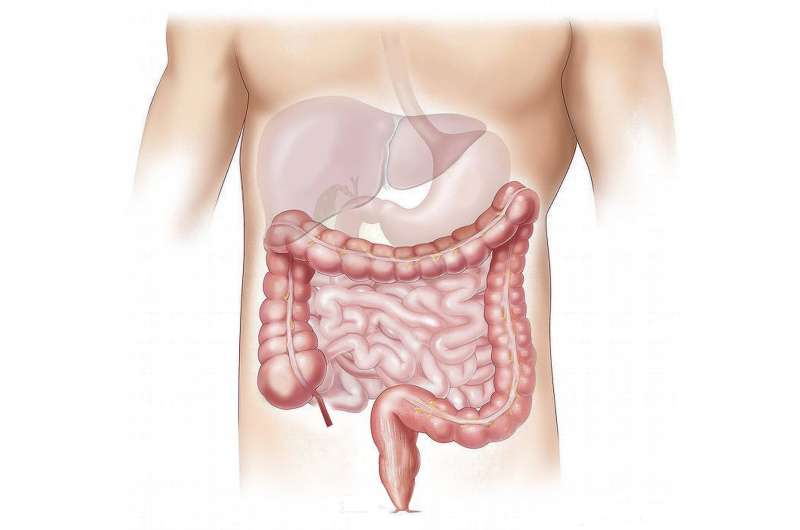Transporter's role in gut barrier linked to intestinal dysfunction

The cotransporter NKCC1 moves sodium, potassium and chloride ions across the cell membrane of many cell types, including intestinal epithelial cells. Two patients with mutations in NKCC1 suffered from severe intestinal dysfunction and chronic infections.
To explore the cellular and molecular mechanisms underlying the role of NKCC1 in the intestinal pathology, Eric Delpire, Ph.D., and colleagues studied a mouse model of one of the human mutations. They showed that expression of the mutant NKCC1 caused defective goblet cell mucus secretion and an aggravated inflammatory response to bacterial infection. The mice also had reduced expression of a tight junction protein involved in sodium and water transport and clearance of intestinal infection.
The findings reported in Cellular and Molecular Gastroenterology and Hepatology indicate that the mutant NKCC1 impairs gut barrier function by affecting mucus secretion and immune properties. Similar mechanisms may cause infections in patients with other deficits in epithelial transport.
More information: Rainelli Koumangoye et al. Novel Human NKCC1 Mutations Cause Defects in Goblet Cell Mucus Secretion and Chronic Inflammation, Cellular and Molecular Gastroenterology and Hepatology (2019). DOI: 10.1016/j.jcmgh.2019.10.006




















